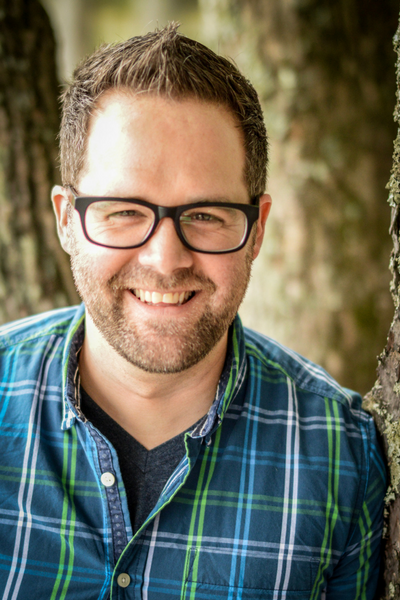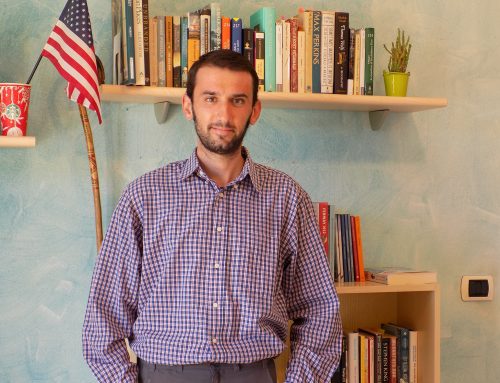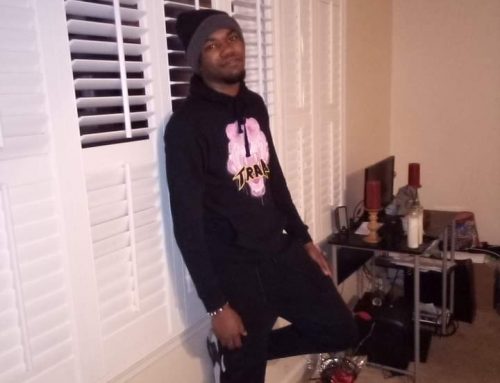What’s it Like to Feel Crazy?
The other day at work, I couldn’t take any more. I grabbed my water bottle and keys and followed the road near my office complex until it led me to the highway. For 45 minutes, I drove. Where I went didn’t matter. The trees blurred past my car windows just like the thoughts clouding my mind. At this speed, it was impossible to see any one tree or thought, but I could feel them, taunting me as I raced by. I was starving but I drove past one restaurant after another. Nothing sounded good, anyway.
Have you ever had a “crazy day”? One of those days where a thousand tiny things compound and before you know it, you need either a stiff drink or a straight jacket? I think we’ve all been there. Hard days aren’t anything new to me.
At the next intersection, I was hurting so bad. I stopped at the red light and leaned my head against the steering wheel, just for a moment. I wanted to cry. To shout a giant “fuck you” to everyone on the highway at that moment. I wanted to cry, but I couldn’t. The fast paced, hard to focus, overwhelming, racing and negative thoughts were clouding my mind and smothering me inside my car. I couldn’t catch my breath. The horn of the F-150 in my rearview mirror finally got my attention and I drove North, anxious, stressed, and angry. I had been just barely holding it together for two days.
Coming off one SSRI and starting another one sucks, and that’s what I’m doing now. Both medications are in the same “family”, according to the doctor, but it doesn’t matter. One SSRI may act one way and have a particular side effect, while another med in the same family may do something completely different to the same person. Even the exact same drug can be different in two different people. I hate feeling dependent, but I know that without them, my behavior might not be so even-keel.
There are days I feel like a science experiment, trying each med my doctor prescribes, hoping one of them will make life normal again. Sometimes the med works for a while and stops. Most recently this medication destroyed my libido. At thirty-four, no longer being able to connect with my wife sexually, adds mountains of shame on top of an already steaming pile of guilt. So I travel back to the doctor’s office for another humiliating visit and tell her just exactly what my side effects are.
#ThisIsWhatAnxietyFeelsLike
So we’re trying a new med. And we hope for different results. Hope: that’s a funny word. The Bible calls it the anchor of our souls, but all an anchor does it keep you from drowning. It does nothing to prevent the wind and waves from ripping your sails and smacking you around.
I tossed and turned all night, checking the clock at 11:40, 12:12, and every half-hour that followed. To add insult to injury, after drinking coffee for fifteen years, the doctor said it was making my anxiety worse. At my last visit, my blood pressure was higher than it’s ever been in my life. I’ve not had any coffee in a month. Today, in particular, I resent it.
The frustration and uncertainty piled up and came toppling down mid-morning.
I wanted to see my wife. I wanted to call my Momma or my Grandmother. I wanted to call a couple of different friends. But I was ashamed. When I am having a hard day my negative self-talk loves to tell me how crazy I am. That I’m a burden, unworthy of love. Words ran through my head like, “You’ll never see your dreams come true. You can’t even hold yourself together!” Shame and anxiety never fight fair. They attacked where it hurt the worst: belonging and acceptance. I felt helpless and stuck. I bought into the bullshit and ran with it today.
I screamed as I drove out of the parking lot. Partly at God and partly just for the hell of it. It didn’t necessarily make me feel better, but it made me take a deep breath. That was a start. I exhaled and finally realized I had been feeling vulnerable, exposed, and ashamed of my own mental illness for two solid days. I needed to give myself some space to breathe.
In the 45 minutes away from work and responsibility, I did just that, found my breath again. I allowed my emotions to cool a bit. In the Best Buy parking lot, I finally cried. And as hot tears poured down my face, I heard a different voice. The voice of grace, which sounds a lot like truth and patience and self-compassion. It reminded me that feeling crazy and being crazy are not the same thing. I slowed down long enough to recognize that my life wasn’t over, that there would be a purpose for this pain.
I had plenty of hard days before my suicide attempt. But afterward, I wondered if I would ever be a value-added member of any community again. I constantly struggled with my diagnosis, believing I would never feel normal again. I remember looking into my little boy’s innocent and curious blue eyes, pleading with God to save him from his own father. Wrestling with relationships was one of the hardest battles of all, but not nearly as difficult as wrestling with my faith. How can one feel faithful in light of depression and anxiety? The thing to remember is that the hard days after the attempt are no different than the hard days before the attempt. They are hard days. And sometimes they really suck.
Hard days are not different before or after the crisis has ended, but the person who attempted suicide is certainly different. They have tasted death. They’ve traveled to the bottom of the barrel and know what rock bottom feels like. For me, it was the latching of the large metal door, which locked me in the bowels of the hospital. Someone recovering from a suicide attempt knows what the end of the rope looks like. But they are still alive, still holding on, caught between secretly hoping the strands fray so they can die, or wishing their feet could just touch solid ground.
For me, the hard days still come, but I know what to do with them now. I’m able to recognize shame for what it is. I know to let the emotions wash in and recede, like a tide. I know there is an ebb and flow to life, even life that includes triggers and trauma. I have learned to no longer read my emotions as the only truth.
At the end of a hard day, I get back in the same car, but I am stronger for having faced my struggles head-on. I put the car in drive and I head home–to my safe place, my comfort zone, my support system–and I rest. Hard days will come again, but as I drive, I know those good days will come too.
*For more conversations around faith and mental health, check out the CXMH Podcast with Steve Austin and Robert Vore. A great place to start is Episode 2: The Power of Storytelling, with Sarah Fader of Stigma Fighters and Sarah Schuster of The Mighty.

Steve Austin is the author of the Amazon best-selling book, From Pastor to a Psych Ward, plus Self-Care for the Wounded Soul, and The Writer’s Toolkit.






Leave A Comment